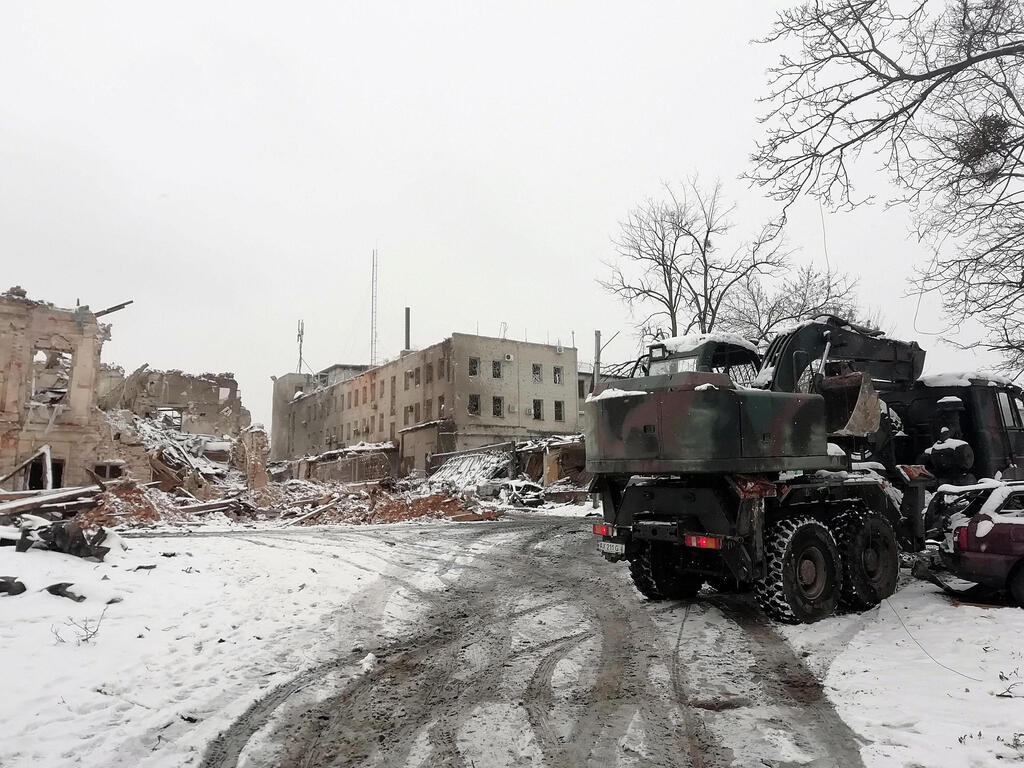Getting your Trinity Audio player ready...
Sales of Russian vodka brands in Israel have dropped precipitously in recent weeks as local bars and restaurants join a global effort to boycott Moscow in protest of its invasion of Ukraine.
Of the businesses that stopped offering the Russian-made spirit to its patrons is Vikings — a restaurant that specializes in Eastern European cuisine and has been operating in Tel Aviv for two decades.
"I don't sell Russian-made vodka anymore, that's my act of protest," said 62-year-old Viki Zikov, who was born in Kharkiv, the second-largest city in Ukraine and a target of incessant Russian shelling in recent weeks.
"I don't have anything against the Russian people, but my family and I hail from Kharkiv, and our city is gone, it was simply wiped off the map," she said with a trembling voice.
Zikov's mother, son, daughter-in-law, and grandson are still living in the heart of the besieged city.
"My family lives right in the middle of the city, they're inside the house and can't get out or run away. There's no fuel, the roads are closed or bombarded by missiles," she said.
"A missile fell less than 500 meters (0.3 miles) away from the house, and no one thought the invasion would actually happen. It's the 21st century, we thought the world was sane. This morning, my daughter-in-law went out to buy bread – but the shelves are completely empty, and everything was looted. And now with Russians in the city, there's a curfew and they're afraid to get out. I'm very worried because they have nothing left to eat."
"I also saw images that my friends back in Ukraine sent me, and I'm horrified. I spoke with a friend I went to the university with, and she said she doesn't know what to do because she is 65-years-old and her mother is 90-years-old and in a wheelchair, and they have nowhere to run. She sent me a photo of her building, and half of it was gone."
Experts believe that the slump in sales will continue bedeviling Russian brands the more fighting in Ukraine protracts.
"Russian vodka brands are in bad shape, and are already seeing up to 18% drop in sales," said Carmen Bryan, a consumer analyst at polling company Global Data. "A long-term conflict will not only affect immediate sales but may also lead to complete shunning of Russian goods in the long run."
One Israeli vodka importer said that while he sympathized with the cause behind the boycott, it was doing more to hurt ordinary civilians in both Russia and Israel than the Russian government.
"While we understand the boycott of Russian products, we must point out that the invasion of Ukraine is an act of the Russian government, and the boycott of our vodka does not harm the Russian government at all, but it does harm a Russian family that produces the drink and an Israeli family who have a dream of providing excellent Russian vodka at a reasonable price," said the importer, who asked to remain anonymous.
"Every little profit we make stays in Israel, and with it, we pay our marketing team, sales promotions, social media ads, and many other service providers. We are the only ones affected by the declining consumption of vodka, Russia will never feel it and [Russian President Vladimir] Putin surely won't feel it."




